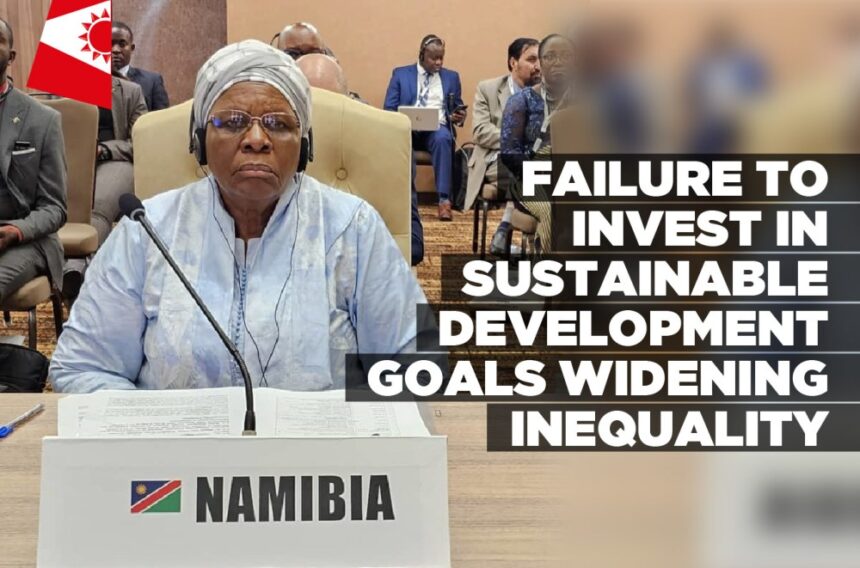Staff Reporter
THE Minister of International Relations and Cooperation, and Deputy Prime Minister, Netumbo-Nande Ndaitwah, spoke at the opening of the 3rd South Summit of the G77+China, highlighting that the failure to invest in the United Nations Sustainable Development Goals (SDGs) threatens the economies of developing countries and deepens inequality.
The G77+China, currently being held in Kampala, Uganda, is the largest grouping of the global South, representing 134 member countries, including China. It serves as the most important platform for developing countries to harmonize views on global issues. Speaking at the 3rd Summit, themed “Leaving No One Behind,” Nande-Ndaitwah said that the event’s theme is appropriate and relevant, emphasizing the imperative of ending extreme poverty and reducing inequalities and vulnerabilities.
“The United Nations Sustainable Development Goals (SDGs) Report 2023: Special edition titled, ‘Towards a Rescue Plan for People and Planet,’ indicates that more than half of the world’s population has been left behind. More than half of the SDG targets have not recorded enough or any progress at all, while 30% have either halted or been reversed. The failure to collectively invest in the SDGs is felt by developing nations, threatening the growth of their economies and deepening disparities, driving our people deeper into poverty—a phenomenon that greatly affects women, youth, and children disproportionately,” Nande-Ndaitwah said.
Some of the top SDGs include ending poverty, hunger, and promoting good health and well-being. In addition to advocating for a recommitment to the SDGs, the International Relations Minister drew attention to Namibia’s classification as an “upper-middle-income country.” Nande-Ndaitwah added that this classification presents challenges that have constrained Namibia’s ability to effectively mobilize resources to finance its development goals and address historical injustices.
“Namibia is not asking for free money; we only demand justice that will enable us to have access to affordable finance. Therefore, the reform of the international financial architecture is crucial to bridging inequalities between developed and developing countries,” Nande-Ndaitwah said. Further, she added that Namibia, in solidarity with oppressed peoples, particularly those suffering the consequences of armed conflict and violence worldwide, emphasizes the need for ensuring human rights for all. She welcomed the International Court of Justice’s consideration of the legality of Israel’s occupation of Palestine—a matter brought to the Court by some UN Member States, including Namibia, in July 2023.



Leave a Reply